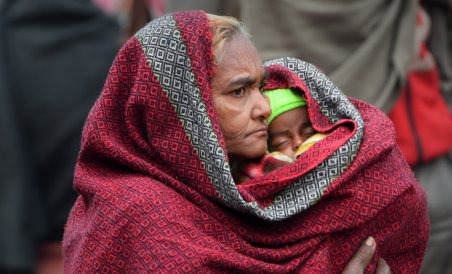Why is it that people refrain from saying the word ‘abortion’ in India even though it is constitutionally protected and how is the taboo manufactured and public perception constructed?
As we celebrate International Safe Abortion Day, the catchphrase, “A woman has the right to an abortion that is safe and lawful,” plays out in our minds. Even though it is legally mandated and protected under the Constitution, the negative connotation and public consensus about the term ‘abortion’ is stained with shame and remorse. The narrative of abortion in India is premised on the manufacturing of taboo regarding the topic that shapesthe perception of society and disables women to practice their constitutional rights.

Obstacles to abortion continue to include social censure, patriarchal morality ingrained in the medical system, and medico-legal ambiguities.
From omitting to the extent of barring the use of the term ‘abortion’, there is a certain amount of discomfort that the utterance spur, coercing people to use ‘MTP’ as a verb to avoid the bizarre looks and disdainful stares. MTP stands for the noted Medical Termination of Pregnancy Act, which safeguards women’s right to abortion in India.
Why is it then people refrain from saying the word ‘abortion’, and how is the taboo manufactured and the public perception of the subject constructed?
Abortion in India: Manufacturing taboo and the narrative of disgrace

When it concerns reproductive rights, India is amongst the most progressive legislation. However, some startling events occur because of the social stigma associated with abortion and ignorance of a woman’s rights.
Abortion discourse includes moral, theological, and socio-cultural undertones in addition to medico-legal issues. It is an overwhelmingly taboo subject that is made more difficult by socioeconomic and health issues. Situated at the intersection of religion, culture, medical authority, patriarchy and politics of hegemony, the narrative of abortion is that of a taboo that is systematically institutionalised and propagated to manufacture it and construct the perception of society.
The family planning and healthcare industries have traditionally viewed women’s sexual and reproductive health rights (SRHR) as an aspect of/within the family and the state’s moral custodianship, recognising the reproductive roles of wives and mothers but depriving them of bodily autonomy and sexual agency both inside and outside heterosexual marriages.

In society, women are categorised as either good or vicious, morally upright or loose. The virgin/vamp as well as goddess/slut binary are widely used in pop cultures and our languages.
The historical backdrop of state birth control laws in India is what led to the liberalisation of abortion, not a feminist strategy based on women’s SRHR. Following the Medical Termination of Pregnancy (MTP) Act of 1971, abortion has been legal in India. This law was not implemented out of feminist or women’s rights concerns, but rather as a means of population control.
The consequence of manufacturing this extensive taboo around the topic of abortion has its fallout and the burden of which is suffered by women who experience a damaging crisis that often neglect their opinions and violate their right.
The UNFPA State of the World Population Report 2022 states that between 2007 and 2011, 67 % of abortions performed in India were deemed to be “unsafe.”
Almost eight women die every day from causes associated with unsafe abortion, making it the third highest cause of maternal death. In India, unsafe abortions account for 8% of all maternal fatalities each year, making them one of the most common causes. This is happening even with the MTP of 1971, which gave India’s citizens the legal right to safe abortions.
In such a scenario, the language and connotations employed by the media to discuss and report on abortion stories infiltrate public awareness and impact how abortion is interpreted.
The rhetoric against abortion is, most importantly, just as institutionalised in India as it is in the US. Abortion already has a great deal of stigma and taboo, and there are different regulations like the Pre-Conception and Pre-Natal Diagnostic Techniques Act and the Protection of Children from Sexual Offenses Act that establishes a narrow line to walk through.
The government has launched several initiatives to increase public awareness about maternal health. Despite this, vulnerable women from marginalised groups and physically remote locations continue to be excluded from public health programmes, according to a 2018 report on sexual Health and Reproductive Health Rights in India. The stigma surrounding abortions is a common occurrence in the country. The lack of information, resources, social conditioning, stigma and perhaps even doctors in India’s rural locales have made this topic a widespread taboo.
The responsibility of accurately transmitting information is that of the media, because of its ability to influence people’s perception of various subjects. Particularly when it comes to abortion where the odds of dissipation of false information are high, and validating the prevailing taboo around the issue.
Abortion Laws in India: A brief look at the legality and implementation of the law
India, which is proud of itself for having advanced abortion regulations, also ranks unsafe abortion as the third-leading factor in maternal fatalities. Nearly 80percent of Indian women are unaware that abortion is allowed if done before 20 weeks.
A much-needed change to the Medical Termination of Pregnancy (MTP) Act of 1971 was approved by the Rajya Sabha on March 17. By authorising MTPs for up to 20 to 24 weeks for special categories of women, this new Bill assures that women have access to effective and legal abortion amenities on a medicinal and humane rationale.
Instead of the consensus of two doctors that were previously required for MTPs after 12 weeks, it permits termination of pregnancy up to 20 weeks solely on the assessment of one doctor. A much-needed change to the Medical Termination of Pregnancy (MTP) Act of 1971 was approved by the Rajya Sabha on March 17. By authorising MTPs for up to 20 to 24 weeks for special categories of women, this new Bill assures that women have access to effective and legal abortion amenities on a medicinal and humane rationale.
Instead of the consensus of two doctors that were previously required for MTPs after 12 weeks, it permits termination of pregnancy up to 20 weeks solely on the assessment of one doctor.
If a method of contraception or device fails, a married woman may terminate the pregnancy up to 20 weeks into it. Additionally, the Bill permits unmarried women to end a pregnancy. If pregnancy can be ended beyond 24 weeks due to foetal anomalies, a medical board made up of a gynaecologist, paediatrician, sonologist, and other professionals that are established by the state and UT governments will make the decision.
A registered medical professional is prohibited from disclosing a woman who has had MTP to anybody who is not legally mandated, and infractions are punishable by up to a year in jail, a fine, or both. The word “spouse” in the Bill has been changed to “partner” to recognise cohabitating partnerships.
Even though it can seem like women have increased autonomy, it is not exclusively focused on their preferences. According to a study of the MTP Act, a pregnant woman cannot merely declare that the pregnancy is undesirable. Abortion is only permitted in specific circumstances, such as rape, foetal abnormalities, and threats to the woman’s physical or mental health, and not because she voluntarily chooses not to have the baby. This regulation may appear to be relatively liberal on paper, but it is not without stigma, accessibility, or knowledge.
Though applauded for its liberal approach, glimpsing at conditions under which abortion is approved, the law becomes restrictive even without any changes made, which may force women to undergo threefold scrutiny –social, political and legal norms. And importantly, in the context of India, the notion of choice is still tenuous.
Abortion is beheld as a complicated operation since it has religious, ethical, and moral components. Even though it is a matter of human rights, it is always complicated by cultural prejudices and societal norms that render the issue taboo and further complicate the existing parameters.
Although there are certain legislation and laws to facilitate access to abortions, Indian women still confront impassable socioeconomic barriers. India also falls short in terms of having laws and policies that are grounded in sound science and prioritise women.
Read More: Prison time for abortion, politicians are pushing a bill













